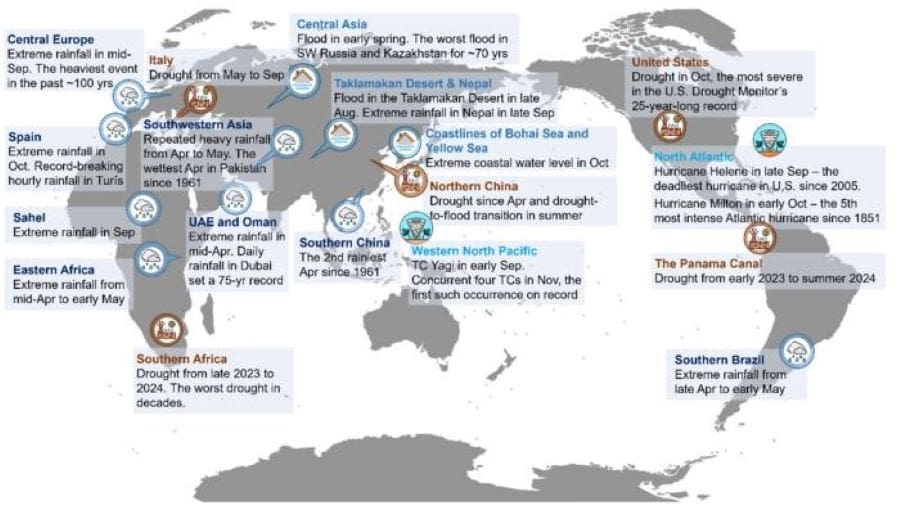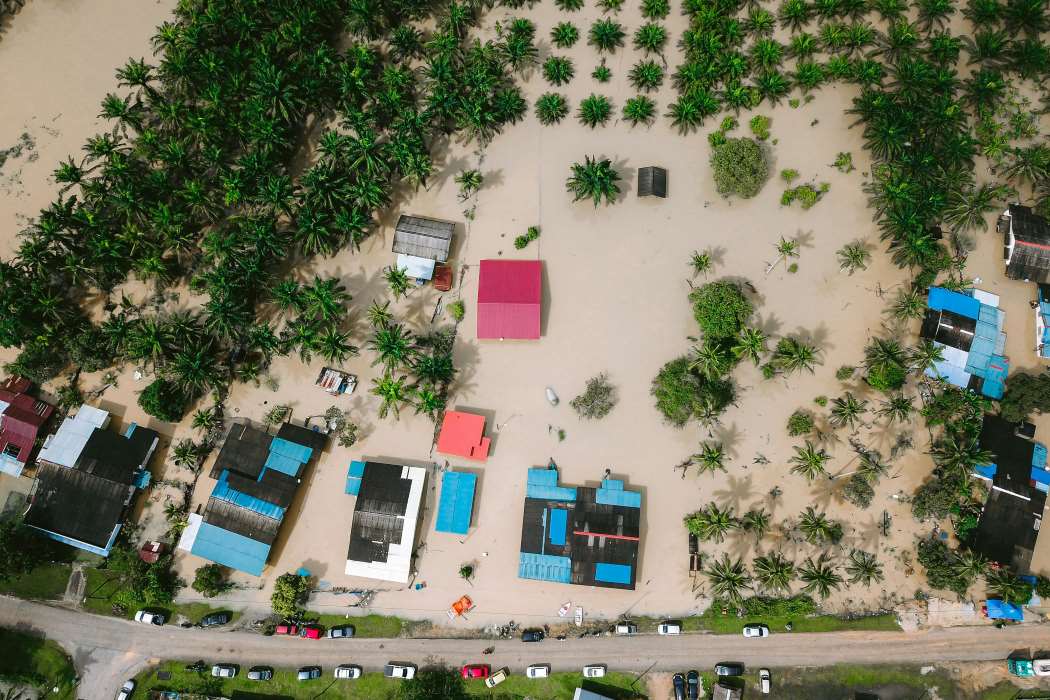The year 2024 brought unprecedented climate challenges, marked by severe droughts in southern Africa and Central America, catastrophic flooding in Spain, and the destructive Hurricane Helene along the U.S. East Coast.
These events, which impacted billions, were examined in a study led by Dr. Wenxia Zhang of the Chinese Academy of Sciences (CAS), published in Advances in Atmospheric Sciences. The paper provides a comprehensive overview of the year’s extreme weather, exploring their causes, the influence of global warming, and future resilience strategies.
The research highlights the significant role of global phenomena such as El Niño, which influenced many extreme rainfall and drought events in 2024. However, Dr. James Risbey from CSIRO, a coauthor of the study, notes that larger-scale drivers like ENSO cannot fully explain individual extremes.
Human-induced climate change, driven by increased atmospheric moisture and evaporative demand, has exacerbated the intensity and frequency of such events. Dr. Zhang explains: “This is consistent with basic physical understanding that anthropogenic warming leads to increases in atmospheric moisture and evaporative demand, and hence, potentially enhances extreme rainfall and droughts, respectively.”

Despite advances in understanding these phenomena, challenges persist in accurately attributing extreme weather to specific causes. Dr. Michael Brody from George Mason University (USA) and the International Agricultural University (Uzbekistan) emphasizes the importance of refining attribution science to guide disaster recovery and preparedness.
“Improved extreme event attribution requires better understanding of climate change,” he states.
Forecasting and preparedness remain critical in mitigating the impacts of extreme events. While some events, such as Hurricane Helene, were well-predicted, vulnerabilities in underprepared communities often magnify the consequences.
Dr. Zhuo Wang from the University of Illinois points to the necessity of enhancing warning systems and community readiness: “Some of the extreme events witnessed in 2024, such as Hurricane Helene, were well forecasted. The destructive impacts were partly due to the vulnerability of the underprepared community to a changing climate.”
Similarly, Dr. Piotr Wolski from the University of Cape Town stresses the importance of disseminating forecasts effectively and addressing societal vulnerabilities to reduce risks: “Increasing the quality of forecasts is important, but to reduce the impacts of extreme events, it is more important to achieve proper dissemination of warnings and to act upon them to lessen existing vulnerabilities.”
The events of 2024 underline the urgency of building climate resilience. As seen in Valencia, Spain, where floods caused significant damage and unrest, the growing frequency of extreme weather demands a dual focus: mitigating climate change and preparing societies for its impacts. Understanding and predicting these events, combined with robust response systems, will be crucial in safeguarding lives and livelihoods in an increasingly volatile climate.
Journal Reference:
Zhang, W., Zhou, T., Ye, W. et al. ‘A Year Marked by Extreme Precipitation and Floods: Weather and Climate Extremes in 2024’, Advances in Atmospheric Sciences (2025). DOI: 10.1007/s00376-025-4540-4
Article Source:
Press Release/Material by Institute of Atmospheric Physics | Chinese Academy of Sciences (CAS)
Featured image credit: Pok Rie | Pexels




